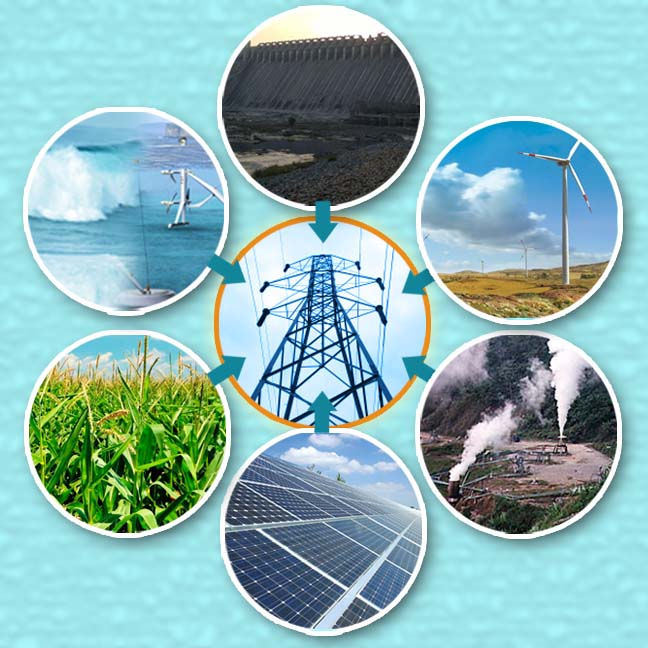What is meant by Renewable Energy?
Renewable Energy
What is meant by Renewable Energy?
Renewable energies (or renewables) are ways to generate energy from (theoretically) unlimited natural resources. These resources are either available with no time limit or replenished more quickly than the rate at which they are consumed.
Renewable energies are generally spoken of as opposed to fossil fuel energies. The fossil fuels’ stocks are limited and non-renewable in the human timescale. The most known examples of these resources are coal, oil, or natural gas. On the contrary, renewable energies are produced from renewable sources.
The most popular renewable energy sources currently are:
- Solar energy
- Wind energy
- Hydro energy
- Tidal energy
- Geothermal energy
Solar Energy
Sunlight is one of our planet’s most abundant and freely available energy resources. The amount of solar energy that reaches the earth’s surface in one hour is more than the planet’s total energy requirements for a whole year. Although it sounds like a perfect renewable energy source, the amount of solar energy we can use varies according to the time of day and the season of the year as well as geographical location.
Wind Energy
Wind is a plentiful source of clean energy. To harness electricity from wind energy, turbines are used to drive generators which then feed electricity into the National Grid.
Hydro Energy
Hydroelectric energy, also called hydroelectric power or hydroelectricity, is a form of energy that harnesses the power of water in motion such as water flowing over a waterfall, to generate electricity.
Tidal Energy
Tidal energy is produced by the surge of ocean waters during the rise and fall of tides. Tidal power or tidal energy is harnessed by converting energy from tides into useful forms of power, mainly electricity using various methods. Although not yet widely used, tidal energy has the potential for future electricity generation. Tides are more predictable than the wind and the sun.
Geothermal Energy
Geothermal energy is heat derived within the sub-surface of the earth. Water and/or steam carry the geothermal energy to the earth’s surface. Depending on its characteristics, geothermal energy can be used for heating and cooling purposes or be harnessed to generate clean electricity.
Benefits of Renewable Energy
Using renewable energy over fossil fuels has several advantages. Here are some of the top benefits of going green
1. Renewable energy will not run out
Renewable energy technologies use resources straight from the environment to generate power. These energy sources include sunshine, wind, tides and biomass, to name some of the more popular options. Renewable resources will not run out, which cannot be said for many types of fossil fuels.
2. Maintenance requirements are lower
In most cases, renewable energy technologies require less overall maintenance than generators that use traditional fuel sources.
3. Renewables save money
Using renewable energy can help you save money long term. Not only will you save on maintenance costs, but on operating costs as well.
Disadvantages of Renewable Energy
Renewable energy has many benefits, but it is not always sunny when it comes to renewable energy. Here are some disadvantages to using renewables over traditional fuel sources.
1. Higher upfront cost
While you can save money by using renewable energy, the technologies are typically more expensive upfront than traditional energy generators.
2. Intermittency
Though renewable energy resources are available around the world, many of these resources are not available 24/7, year-round. Some days may be windier than others, the sun does not shine at night, and droughts may occur for periods of time.
3. Storage capabilities
Because of the intermittency of some renewable energy sources, there is a high need for energy storage. While there are storage technologies available today, they can be expensive, especially for large-scale renewable energy plants.

